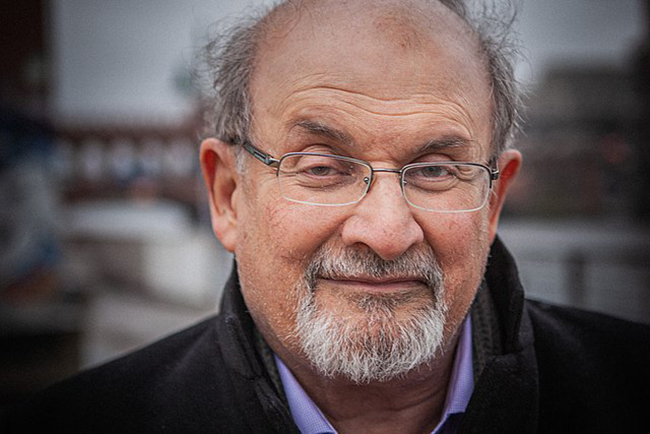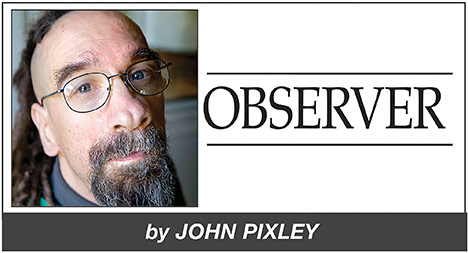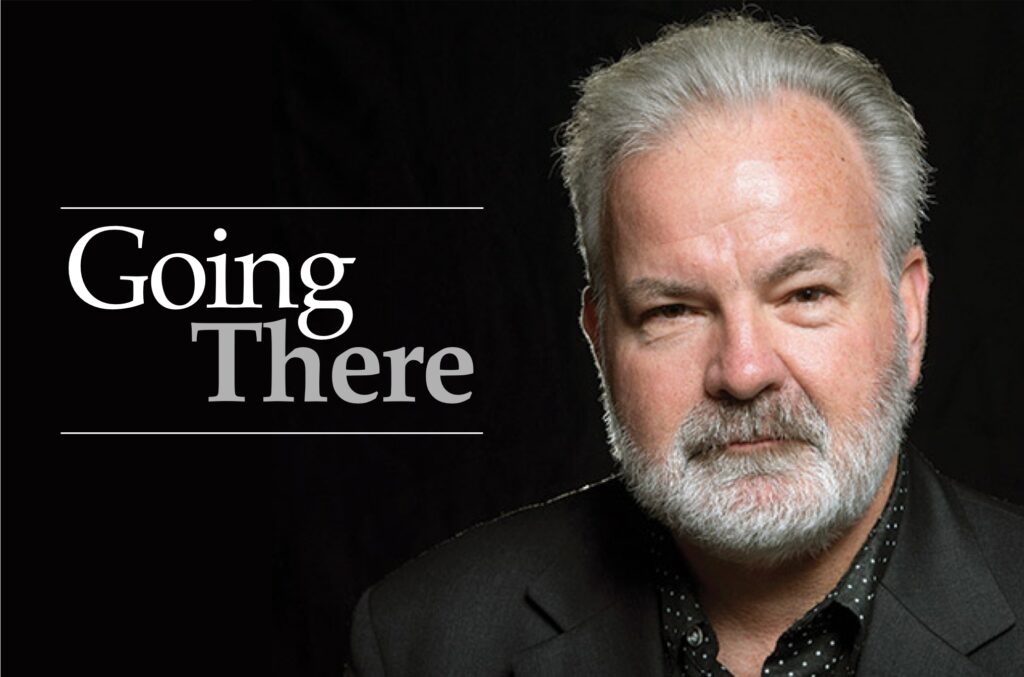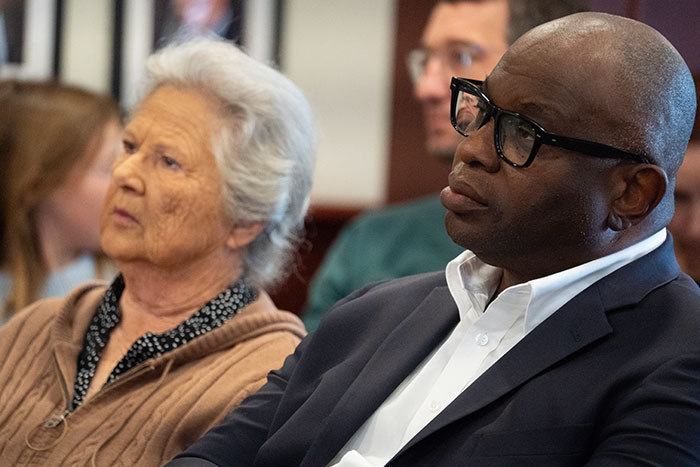Viewpoint: What was lost by silencing Rushdie

After reports that Salman Rushdie would deliver the keynote address at Claremont McKenna College’s May 17 commencement sparked outrage, on Tuesday CMC President Hiram Chodosh announced the novelist had withdrawn from the job. Photo/by Christoph Kockelmann
by Allison Lee | Special to the Courier
With the announcement that Salman Rushdie has decided to withdraw as keynote speaker at Claremont McKenna College’s May 17 commencement, we are reminded that the stakes of freedom of expression are not confined to faraway lands or abstract principles, but are present here and now, on our own Southern California campuses.
One cannot fault Rushdie — a man who has survived decades of threats, years in hiding, and a brutal attempt on his life for the words he has written — for making this choice. But the criticisms of Rushdie that led to this moment reveal a painful irony: students who have rightly protested to defend their own free speech have now denied that same right to someone whose views they find disagreeable. Rushdie’s withdrawal follows a rising tide of campus speaker controversies, from law schools to Ivy League campuses, where ideological litmus tests are increasingly determining who may speak.
Rushdie has dedicated his life to defending the fundamental right to speak and to write freely, even at profound personal cost. As he has said, “What is freedom of expression? Without the freedom to offend, it ceases to exist.” One may disagree with him — deeply, vocally, passionately. But, by successfully silencing Rushdie, this campaign has denied the very principle that enables us to raise our own voices.
At PEN America, we believe that the answer to speech we find offensive or painful is not less speech, but more. A flourishing democracy depends on our ability to confront ideas, to argue, to protest — not to erase. The right to challenge a speaker is sacrosanct. So too is the speaker’s right to speak and to be heard.
What we lose when we cancel someone like Salman Rushdie is not simply a single event or viewpoint. We lose an opportunity to model engagement across differences. We lose a chance to hear from someone who has lived on the frontlines of literary and ideological persecution. And we risk mirroring the very authoritarian tactics we condemn elsewhere: silencing voices by decree and marginalizing dissent.
When our government officials threaten pro-Palestinian protesters with arrest or deportation for expressing their views, it is a clear violation of their free speech rights. But whether wielded by institutions, or student organizations, or the state, coercive suppression of expression undermines the same principle. If we want to protect a culture of free expression, our commitment to it must be consistent, not conditional.
Student leaders who led the campaign against Rushdie’s place at the commencement podium have reportedly responded they are “surprised, relieved and happy” about his decision. That is a sad reflection on the state of free speech in our democracy. Freedom of expression is not a prize to be awarded to the uncontroversial. It is a right — and a responsibility — that only means something when it protects the controversial, the dissident, the difficult.
CMC’s commencement could have been a moment of reflection, challenge, and growth. It could have been a moment for graduates to reflect on the choices they will make to defend the rights of not just those they agree with, but those with which they have deep disagreement. Who better could they have learned about the value of free expression in a fraught world than someone who has risked his life to defend it?
Moving forward, let us listen, debate, and disagree. But let us not silence. Rather, let us cultivate the skills to listen deeply, challenge responsibly, and defend the rights of all — even, and especially, when we disagree.
Allison Lee is the managing director of PEN America Los Angeles.









0 Comments